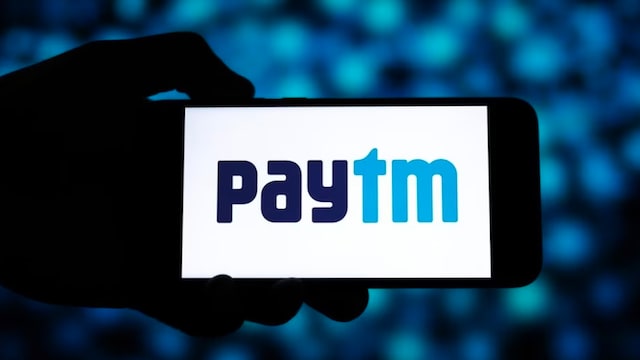After seeing its shares fall by 20 per cent on Thursday, the day, after the Reserve Bank of India took decisive action against Paytm Payments Bank and prohibited them from offering its core services, including accounts and wallets, effective from March, shares of the troubled fintech company, dropped by another 20 per cent.
As of writing this article, shares of Paytm hit a new low on Friday. The stock is now at Rs 487, nearing its all-time low of Rs 438, which it fell to in March 2022.
Although the central bank emphasized that this move is not a direct cancellation of Paytm Payments Bank’s license, it significantly restricts the company’s operational scope.
The RBI, however, has granted customers the ability to withdraw or utilize their balances without restrictions, up to the available balance in their Paytm accounts, covering various instruments such as savings and current accounts, prepaid instruments, FASTags, and NCMC.
Once hailed as a pioneer in India’s fintech landscape, Paytm Payments Bank boasts a substantial customer base of over 100 million KYC-verified users, as indicated on its website.
Regulatory non-compliances galore
The regulatory intervention stems from persistent non-compliance and material supervisory concerns, prompting the RBI to bar the financial institution from accepting deposits, top-ups, or providing services like wallets, FASTags, and NCMC after February 29.
The RBI’s directive explicitly prohibits the offering of other banking services, including fund transfers (such as AEPS, IMPS, etc.), BBPOU, and UPI facilities after February 29, 2024. Additionally, the central bank instructed the termination of nodal accounts belonging to the parent company, One97 Communications, and Paytm Payments Services, no later than February 29.
Furthermore, the settlement of ongoing transactions and nodal accounts initiated on or before February 29 must be completed by March 15, with no transactions permitted thereafter, according to the RBI.
In response to queries regarding the fate of services such as loans, mutual funds, bill payments, digital gold, and credit cards, the RBI statement remains silent, leaving uncertainty about the future of these offerings.
After Paytm shares plunged by 20 per cent on Thursday, February 1, One97 Communications Ltd, the parent company, asserted that it is swiftly taking measures to comply with the RBI’s directives. The company expressed its commitment to working closely with regulators to address concerns promptly, anticipating a potential impact of Rs 300-500 crore on its annual EBITDA.
Additionally, One97 Communications announced its intention to collaborate solely with other banks, excluding Paytm Payments Bank from future dealings. The Paytm Payment Gateway business, serving online merchants, will continue providing payment solutions to existing merchants.
India’s crackdown on Chinese investments?
The RBI’s move has raised questions about the reasons behind the action, with sources speculating concerns related to KYC compliance and IT issues. The central bank has scrutinized Paytm Payments Bank since 2018, with specific attention to information barriers within the group and data access to China-based entities holding indirect shares in the payments bank through their stake in the parent company.
Antfin, an affiliate of Alibaba, a Chinese conglomerate, holds a 9.89% stake in One97 Communications as of December 31, 2023, raising concerns amid strained India-China relations.
This recent action follows a series of regulatory interventions by the RBI, including a fine of Rs 5.39 crore in October 2023 for deficiencies in regulatory compliance. In March 2022, Paytm Payments Bank was directed to halt onboarding new customers due to persistent non-compliance and supervisory concerns.
Observations by the RBI in 2018 also highlighted concerns about Paytm’s user acquisition processes and the proximity between Paytm Payments Bank and its parent company. Allegations regarding the payments bank’s failure to meet net worth criteria and exceeding deposit limits further compounded regulatory challenges for Paytm Payments Bank.
(With inputs from agencies)
Link to article –
Paytm’s Downfall: Once valued at over Rs 18,300 cr, stock sees another 20% dip, now at Rs 487





